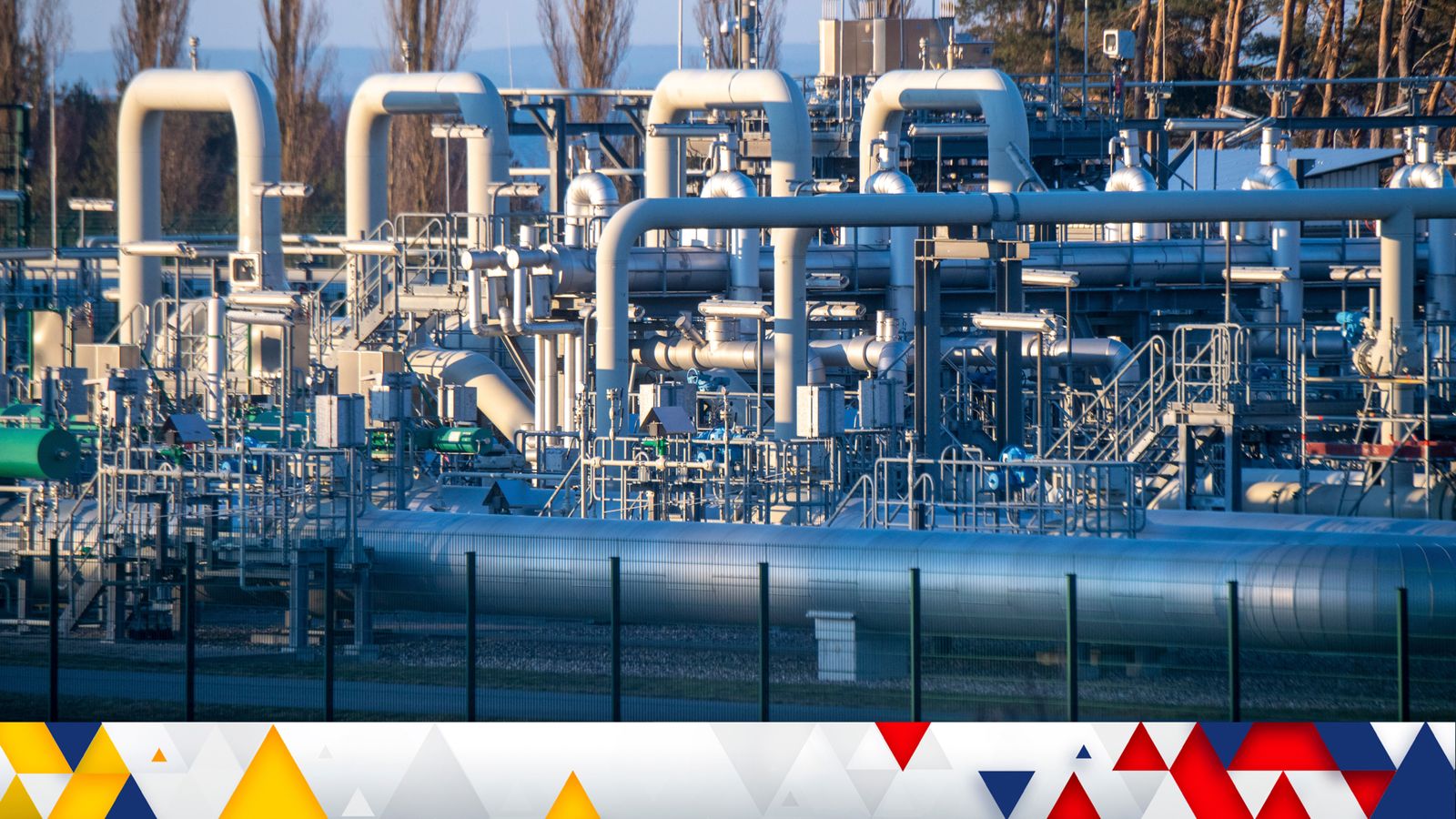Russia made €93bn (£79.4bn) in the first 100 days of the war against Ukraine by selling its fossil fuels to countries all over the world.
This staggering total came despite a significant fall in export volumes in May as the international community tried to reduce dependency on Moscow’s oil and gas.
According to a report by the Centre for Research on Energy and Clean Air (CREA), the EU received 61% of Russia‘s fossil fuel exports.
Hundreds sheltering in chemical plant under relentless attack – Ukraine war live updates
And even as Russian oil is being sold at a discount because of its origin, a global increase in demand for fossil fuel and soaring energy prices have still been lucrative for President Vladimir Putin’s regime, helping to finance his invasion of Ukraine.
CREA’s lead analyst Lauri Myllyvirta said of the current international sanctions against Moscow: “The progress to date is far too slow given Ukraine’s urgent need for support. Much stronger action is needed to cut off the flow of cash to Russia.
“Globally, we need to speed up the deployment of clean energy to replace fossil fuel imports and ease the high fuel prices which are driving up Russia’s revenues.”
Ukraine war: Teenager and father used drone to spy on Russian forces and help army
McDonald’s reopens its doors in Russia under new name ‘Tasty and that’s it’
Ukraine war: Russia launches new ‘sanction-proof’ car
The EU has pledged to block most Russian oil imports by the end of the year although it is struggling to agree on how and when to end its dependency on Russian gas.
Still, Poland and America made the largest impact on Russia’s income by dramatically reducing imports, along with countries like Lithuania, Finland and Estonia.
According to CREA’s research, India, France, China, the United Arab Emirates and Saudi Arabia all increased imports, with India buying 18% of Russia’s crude oil exports, and France the largest buyer of discounted liquid natural gas and oil cargoes on the short-term market.
Mr Myllyvirta said: “The exports of Russian oil to new markets are being enabled by Greek and other European shipping companies.
“As Russian oil is shipped to more distant markets, more tanker capacity than ever before is needed for the transport.
“80% of the tankers carrying Russian oil to India and the Middle East, for example, are European or US-owned.
“This should be the next focus of EU action.”
CREA, which focuses on environmental and air pollution issues, carried out its research by tracking cargo ships, shipping data, gas pipeline flows, and by estimating the value of imports using its own pricing models.









